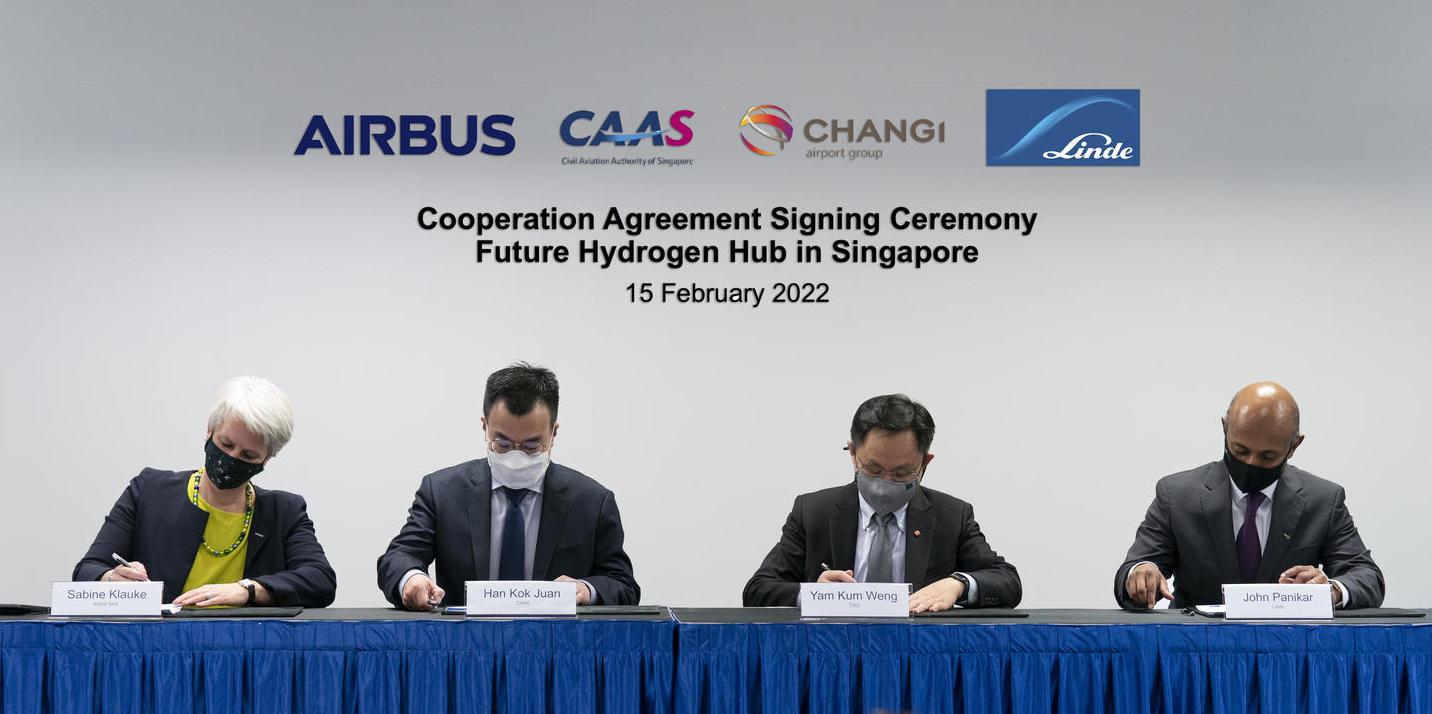Airbus-Singapore Consortium Signs Agreement To Study Hydrogen Aviation Hub

SINGAPORE—Airbus, Changi Airport Group (CAG), the Civil Aviation Authority of Singapore (CAAS) and energy engineering company Linde have signed a cooperation agreement to study the development of a hydrogen aviation hub in Singapore.
The agreement, which solidifies a memorandum of understanding signed in November, will see the four parties collaborate to conduct market analysis on projected aviation demand and supply for hydrogen, regional readiness and the commercial and technical feasibility of hydrogen as a fuel for aviation.
“We would need to explore multiple pathways; while our immediate focus is on sustainable aviation fuel, we also need to explore longer-term alternatives such as hydrogen to better understand the potential and seize opportunities,” CAAS director-general Han Kok Juan said at a briefing at the Singapore Airshow.
“Singapore does not let a crisis go to waste,” CAG VP Poh Li Shan said. While Changi’s massive Terminal 5 program was put on hold and is being re-evaluated in view of the pandemic, it gave CAG the chance to incorporate the potential for T5 design to support hydrogen-powered aircraft.
“It is very important for us to engage at an early stage and look at how the shape, size and dimensions of new aircraft design and other support logistics infrastructure storage can fit with T5 and other airports as well,” Poh said.
CAAS senior director, unmanned systems group, Tan Kah Han, said that the certification of ground-based hydrogen systems would be more “straight forward” where it is done on a local basis.
He added that infrastructure developments could also benefit Singapore’s eVTOL and urban air mobility (UAM) vision, with hydrogen and lithium-ion batteries being a potential hybrid energy source for UAM vehicles.
Airbus is developing a ZEROe portfolio, which includes a hydrogen-powered turbofan and a radical blended wing body aircraft design.
